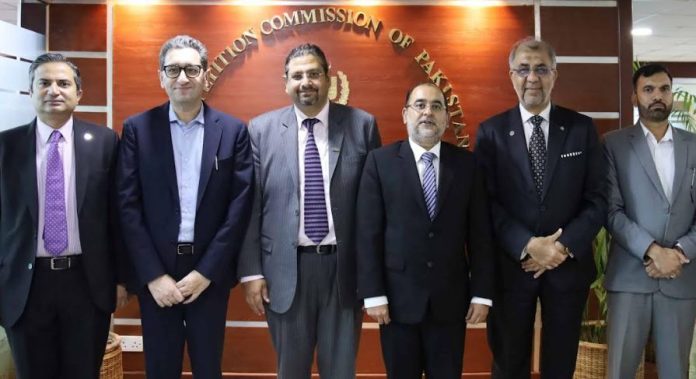ISLAMABAD, 27 SEPT /DNA/ – The Competition Commission of Pakistan (CCP) and the Institute of Chartered Accountants of Pakistan (ICAP) will jointly have Continuing Professional Development (CPD) programmes on Competition Law. The Directors’ Training Programme under the auspicious of ICAP will also include a Module on Competition Law. The programme is part of the advocacy strategy of CCP and is aimed to strengthen the proficiency of ICAP members in Competition Law.
A delegation from ICAP visited CCP to discuss the potential areas of collaboration. The meeting was attended by Mr. Salman Amin, Member (OFT, Exemption & Advocacy) CCP, Mr. Shahzad Hussain, DG CCP, Mr. M. Ali Latif, President ICAP, Mr. Arslan Khalid, Vice President ICAP, Mr. Asad Feroze, Vice President ICAP and Mr. Ashfaq Tola, Former President ICAP.
In the meeting, Mr. Salman Amin expressed that the CCP is committed to ensuring a free and fair competitive environment in all spheres of the economy and commercial activities. CCP considers it important also to create awareness on the same. Since ICAP members are serving in different sectors, it is imperative for them to have a better understanding of competition law. The meeting explored collaboration in areas such as forensic auditing, advanced cost auditing techniques, and addressing deceptive marketing on digital platforms.
It was agreed that as part of the CPD programme, a series of training courses covering specialized modules on Competition Law will be held. Initially, three CPD training modules will be conducted in Karachi, Lahore, and Islamabad. The Directors Training Programmes held under the auspicious of ICAP will also include modules on Competition Law. The speakers from CCP will deliver sessions on competition law. These will empower participants with a better understanding of the provisions of competition law on deceptive marketing, prohibited agreements, abuse of dominant position, and approval of mergers and exemptions procedures.

















